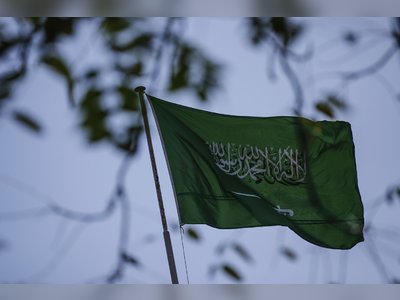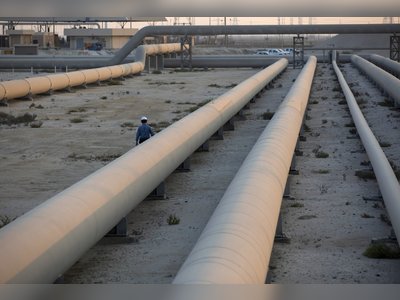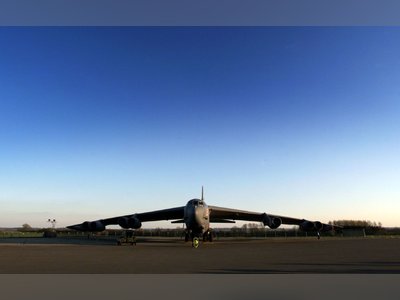
Assad is bolstered by his return to the Arab mainstream.
Bashar al-Assad viewed time as an ally in the Syrian civil war, in addition to the Russian and Iranian weaponry he employed against his adversaries, according to sources familiar with his thinking.
Now that Arab states have reintegrated him, his logic appears to have worked once more.
Syria's readmission to the Arab League could result in Assad rubbing shoulders with Arab monarchs and presidents at a May 19 summit in Riyadh, a significant moment in his regional rehabilitation even as he continues to be shunned by the West.
It would have been inconceivable earlier in the conflict when Gulf Arab states backed rebels fighting to oust Assad, and then U.S. President Donald Trump labeled him a "animal" for using chemical weapons, a charge he routinely denied.
Iran and Russia were always more committed to his survival than his opponents in the West and the Middle East were to seeing him overthrown by insurgents. 57-year-old Assad has outlasted many foreign officials who once assumed his demise was imminent.
As the region's most powerful states pursue entente over conflict, including Assad's Shi'ite Islamist supporters in Tehran and their Sunni rival Saudi Arabia, geopolitical shifts in the Middle East have only strengthened Assad's position.
Syria's foreign policy is predicated on the belief that its adversaries will tire out before it does. This has largely worked out for Bashar al-Assad, according to Century International's Aron Lund.
"However, it's not all easy sailing. Because Syria is so fractured, it is difficult to lift sanctions. I do not believe this will be a game-changing event. However, it does reduce the isolation of the Assad regime."
Damascus has not yet confirmed Assad's attendance at the summit.
In exchange for ending Syria's isolation, Arab states want action, specifically to stop the smuggling of the highly addictive and lucrative amphetamine captagon across Syria's borders into the Gulf.
In recent months, senior Syrian officials and relatives of Assad have been placed on sanctions lists in the United States, the United Kingdom, and the European Union due to the trade, which is seen as a leverage point for Assad in his regional negotiations. At a May 1 meeting in Jordan, Syria agreed to assist end the trafficking.
Assad viewed the war as a foreign plot against a proud Arab nation that opposed the United States and its Middle Eastern allies, particularly Israel.
Using siege warfare to retake eastern Ghouta, a tactic condemned as "medieval" by United Nations investigators, Assad reclaimed the majority of Syria after years of conflict, with the aid of Russia's air force and militias supported by Iran.
The determination with which he set out to crush his adversaries drew parallels to his father, the late President Hafez al-Assad, in the 1980s.
Assad justified his response by comparing himself to a surgeon operating on a lesion. "Shall we tell him, 'Your hands are covered in blood?'" Or do we express gratitude to him for rescuing the patient?" he said in parliament in 2012.
Even in the earliest years of the war, as insurgents captured town after town, he appeared confident of victory.
While he reclaimed the majority of Syria, swaths of the country remained outside state control, cities were destroyed, the death toll exceeded 350,000, and at least a quarter of the population fled abroad.
Assad relished the support of Syrians who believed he was protecting their nation from insurgents intent on supplanting him with strict Sunni Islamist rule.
As groups inspired by al Qaeda gained prominence in the insurgency, this dread reverberated among minority groups, including the Alawite sect that supported his rule in the Sunni-majority nation.
Critics have charged Assad with fostering sectarianism.
As Iran-backed Shi'ite militants from across the Middle East arrived to support Assad, led by Lebanon's Hezbollah, and as Sunni Muslim-led states Turkey, Qatar, and Saudi Arabia supported rebels, the sectarian nature of the conflict intensified.
'RED LINES' In 2015, a senior Iranian official emphasized Assad's importance to Iran by declaring that his fate was a "red line."
While Iran supported Assad, the United States failed to enforce its own "red line" against the use of chemical weapons, as declared by President Barack Obama in 2012.
Investigations supported by the United Nations concluded that the state employed chemical weapons, including sarin and chlorine.
In 2013, the deadliest gas assault occurred in rebel-held Ghouta. The attack with sarin gas resulted in the deaths of hundreds, but there was no military response from the West. The prospect of a U.S. missile strike was averted when Moscow negotiated an agreement for the destruction of Syria's chemical weapons by the following year.
But poison gas continued to be used against rebel areas, signifying the largest use of chemical weapons since World War I. One such attack in 2017, also involving sarin, prompted President Trump to order the launch of cruise missiles.
Assad has consistently denied allegations that the state was responsible. Similarly, he denied that the army had dropped barrel bombs, which are containers filled with explosives that cause random injuries.
He also dismissed tens of thousands of photographs depicting the brutal torture of individuals in government custody as part of a plot funded by Qatar. Caesar, the codename of the defector who secreted the images out of Syria, inspired the naming of the 2020 U.S. sanctions intended to increase pressure on Assad.
As the conflict subsided, Assad accused Syria's adversaries of employing economic warfare. While Assad remained a pariah in the eyes of the West, Arab states that formerly supported his opponents began to open doors for him.
Syria's readmission to the Arab League could result in Assad rubbing shoulders with Arab monarchs and presidents at a May 19 summit in Riyadh, a significant moment in his regional rehabilitation even as he continues to be shunned by the West.
It would have been inconceivable earlier in the conflict when Gulf Arab states backed rebels fighting to oust Assad, and then U.S. President Donald Trump labeled him a "animal" for using chemical weapons, a charge he routinely denied.
Iran and Russia were always more committed to his survival than his opponents in the West and the Middle East were to seeing him overthrown by insurgents. 57-year-old Assad has outlasted many foreign officials who once assumed his demise was imminent.
As the region's most powerful states pursue entente over conflict, including Assad's Shi'ite Islamist supporters in Tehran and their Sunni rival Saudi Arabia, geopolitical shifts in the Middle East have only strengthened Assad's position.
Syria's foreign policy is predicated on the belief that its adversaries will tire out before it does. This has largely worked out for Bashar al-Assad, according to Century International's Aron Lund.
"However, it's not all easy sailing. Because Syria is so fractured, it is difficult to lift sanctions. I do not believe this will be a game-changing event. However, it does reduce the isolation of the Assad regime."
Damascus has not yet confirmed Assad's attendance at the summit.
In exchange for ending Syria's isolation, Arab states want action, specifically to stop the smuggling of the highly addictive and lucrative amphetamine captagon across Syria's borders into the Gulf.
In recent months, senior Syrian officials and relatives of Assad have been placed on sanctions lists in the United States, the United Kingdom, and the European Union due to the trade, which is seen as a leverage point for Assad in his regional negotiations. At a May 1 meeting in Jordan, Syria agreed to assist end the trafficking.
SIEGE WARFARE
Initially shaped by the war in Iraq and the crisis in Lebanon, Assad's reign came to be defined by the civil war that erupted from the Arab Spring of 2011, when Syrians demanding democracy took to the streets and were met with lethal force.Assad viewed the war as a foreign plot against a proud Arab nation that opposed the United States and its Middle Eastern allies, particularly Israel.
Using siege warfare to retake eastern Ghouta, a tactic condemned as "medieval" by United Nations investigators, Assad reclaimed the majority of Syria after years of conflict, with the aid of Russia's air force and militias supported by Iran.
The determination with which he set out to crush his adversaries drew parallels to his father, the late President Hafez al-Assad, in the 1980s.
Assad justified his response by comparing himself to a surgeon operating on a lesion. "Shall we tell him, 'Your hands are covered in blood?'" Or do we express gratitude to him for rescuing the patient?" he said in parliament in 2012.
Even in the earliest years of the war, as insurgents captured town after town, he appeared confident of victory.
While he reclaimed the majority of Syria, swaths of the country remained outside state control, cities were destroyed, the death toll exceeded 350,000, and at least a quarter of the population fled abroad.
Assad relished the support of Syrians who believed he was protecting their nation from insurgents intent on supplanting him with strict Sunni Islamist rule.
As groups inspired by al Qaeda gained prominence in the insurgency, this dread reverberated among minority groups, including the Alawite sect that supported his rule in the Sunni-majority nation.
Critics have charged Assad with fostering sectarianism.
As Iran-backed Shi'ite militants from across the Middle East arrived to support Assad, led by Lebanon's Hezbollah, and as Sunni Muslim-led states Turkey, Qatar, and Saudi Arabia supported rebels, the sectarian nature of the conflict intensified.
'RED LINES' In 2015, a senior Iranian official emphasized Assad's importance to Iran by declaring that his fate was a "red line."
While Iran supported Assad, the United States failed to enforce its own "red line" against the use of chemical weapons, as declared by President Barack Obama in 2012.
Investigations supported by the United Nations concluded that the state employed chemical weapons, including sarin and chlorine.
In 2013, the deadliest gas assault occurred in rebel-held Ghouta. The attack with sarin gas resulted in the deaths of hundreds, but there was no military response from the West. The prospect of a U.S. missile strike was averted when Moscow negotiated an agreement for the destruction of Syria's chemical weapons by the following year.
But poison gas continued to be used against rebel areas, signifying the largest use of chemical weapons since World War I. One such attack in 2017, also involving sarin, prompted President Trump to order the launch of cruise missiles.
Assad has consistently denied allegations that the state was responsible. Similarly, he denied that the army had dropped barrel bombs, which are containers filled with explosives that cause random injuries.
He also dismissed tens of thousands of photographs depicting the brutal torture of individuals in government custody as part of a plot funded by Qatar. Caesar, the codename of the defector who secreted the images out of Syria, inspired the naming of the 2020 U.S. sanctions intended to increase pressure on Assad.
As the conflict subsided, Assad accused Syria's adversaries of employing economic warfare. While Assad remained a pariah in the eyes of the West, Arab states that formerly supported his opponents began to open doors for him.











